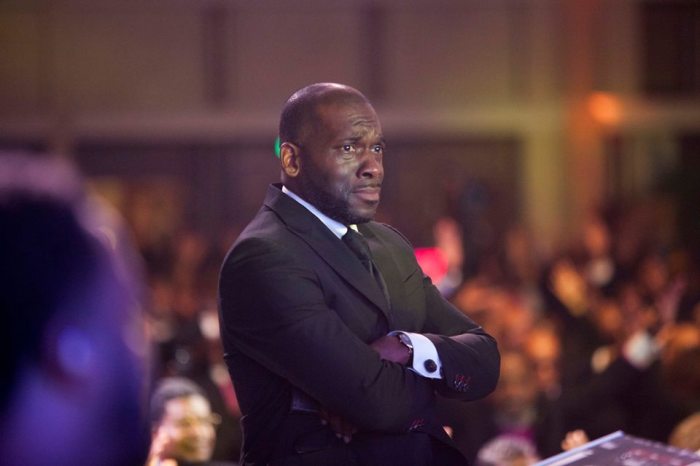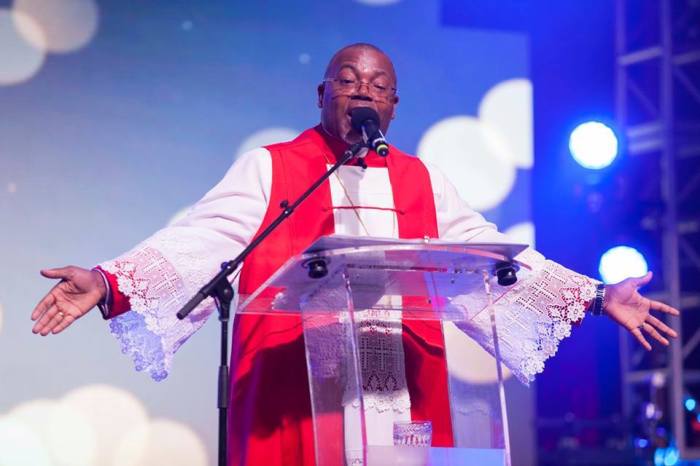Declining church attendance causing depression in some pastors, Global United Fellowship is pushing back

When the annual gathering of the Global United Fellowship kicks off at the Atlantis Resort in the Bahamas on Tuesday, a big discussion on what makes a healthy church is expected to ensue.
And for the fellowship’s leader, Presiding Bishop Neil C. Ellis, there will be some focus on how declining church attendance has been causing mental turmoil for members worldwide.
“First of all, we have to protect the emotions of our church leaders. There has been a global decline in church attendance in the last five to seven years. And so a lot of pastors now are becoming depressed because their numbers are smaller,” Ellis told The Christian Post in an interview last week.
“One of the things we have to get them to look at when we talk about a healthy church is size because everything that’s big is not mature. And everything that’s grown is not fully developed. You could be big and unhealthy, you could be smaller and more healthy. … We’ve got to make sure more and more pastors aren’t becoming depressed because they are seeing a decline,” said Ellis, who is an author and leader of Mount Tabor Union Baptist Church in the Bahamas, where GUF is headquartered.

Launched in October 2013 under Ellis’ leadership, the GUF has grown from a group of 41 to more than 1,400 churches in 42 countries today. And the rise of the organization, which has attracted high profile American preachers such as New Birth Missionary Baptist Church’s Jamal Bryant, is being driven in part because of the leadership Ellis provides as a pastor’s pastor.
“One of the reasons why the fellowship has grown so rapidly is for this very reason. A lot of them see me as a pastor’s pastor. And many of them over the years have not really had a pastor. They’ve been pastoring without a pastor. They’ve not been accountable to anybody. There’s nobody holding their feet to the fire. And so as these guys mature and become older and wiser in the things of God, they are beginning to recognize that they can’t make it on their own,” Ellis explained.
The GUF’s five-pronged mandate to unite churches; equip leaders; enhance marriages; resurrect the dying discipline of prayer and build covenant relationships among church leaders was strategically developed to respond to the evolving needs of pastors in a culture that is rapidly introducing new challenges.
Increasingly, explains Ellis, covenant relationships among pastors is increasingly proving to be an important ingredient in helping them stay healthy.
“There are a lot of pastors in ministry who are very lonely people. They might be doing a good work, they might be pastoring a great church, but they are lonely. And so they have a wonderful public image and a detrimental private life. [They] preach some of the greatest sermons and go home and want to die,” Ellis explained. “And that, too, has come as a result of a lot of pain, a lot of hurt, and a lot of backstabbing and disappointment that they’ve had from other relationships with the clergy. Some who’ve worked with pastors have been abused and let down.”
Ellis explained that when he sat down with leaders to form the fellowship in 2013, they were not interested in creating a group to respond to problems that already had a solution. The focus was on “missing pieces.”
“What we are saying is, when you become a part of Global United Fellowship, as a pastor, we should even be accountable to one another and our goal should be to strengthen who we are and build relationships that are lasting and prevalent,” he said.
“One of the slogans I have in the fellowship is: ‘We’re not just a fellowship, we’re endeavoring to be a family.’ And so I have developed some relationships on a personal level who prior to the development of Global, I didn’t know these guys. Now, we talk in some cases two- to-three times a week,” he said.
“Pastors are longing for real relationships and when we talk about covenant relationships, that’s what we are talking about,” he added.

He explained that the emphasis on building covenant relationships among the clergy was also inspired by the results of a mental health exercise conducted during a pastor’s conference two years ago.
“We did a pastor’s conference two years ago, and one of the things we did at the conference was we brought in three Christian psychologists. Each of them was asked over the three-day period to see a minimum of 20 pastors. In order for you to get an appointment to see the psychologist, all you had was a number,” he explained.
“At the end of the day, we had three pastors who publicly stood up before that group and said, ‘I was considering suicide.’ Now that intensified my desire to really push this whole issue of covenant relationship among the brethren, because I believe nobody who committed suicide, if they were in covenant relationship, I don’t believe it would have happened,” he said.
The Gathering of the GUF will be held July 9–12 and more than 1,700 people are expected to travel to the Bahamas for the event which is expected to attract 3,500 participants from ministries located in the U.S., the Bahamas, Pakistan, England, South Africa, Ghana, Cuba, Haiti, the Philippines and other countries.
“While I know there is no one person or no one group that can unite the Body of Christ, I believe God raises up people and organizations to bring certain elements of the churches closer together. In our case, I believe it is our responsibility to better unite Protestants, Apostolics, charismatics, independents and Pentecostals. That’s our group. And I believe it is an assignment from God to bring these people closer together,” Ellis explained about his group’s mission.
On July 10, breakout sessions at the conference will include “The Community Within the Community,” which will be facilitated by the Billy Graham Rapid Response Team to help leaders respond to the many personal crises that affect congregants.
The conference will feature speaking slots with Devon Franklin and Meagan Goode, Jamal Bryant and Bishop Marvin Sapp, as well as Ellis and other well-known figures in the Christian community.
While participants will be allowed time to relax and enjoy the island, Ellis said there will also be a focus on increasing prayer which is part of the fellowship’s mission.
“I believe that the Church, the Body of Christ no longer prays as much today as it prayed 30 years ago. Consequently, we are seeing churches with less power, and less influence. When you remove the lifeblood from the church — which is prayer because that’s what Jesus said I want it to be known as — when you remove the lifeblood from the church or you scale it down, you remove or scale down the power and influence that that church has,” Ellis said.
“Now in the 21st century church, prayer has been replaced with praise. So you can have 20, 30 minutes of praise going on in a service for two hours and maybe five minutes of prayer,” he continued. “I believe if we’re gonna get the church back into rescuing the perishing, caring for the dying, seeing signs and wonders and miracles follow the work of our leaders, then prayer has to be resurrected,” he said.




























